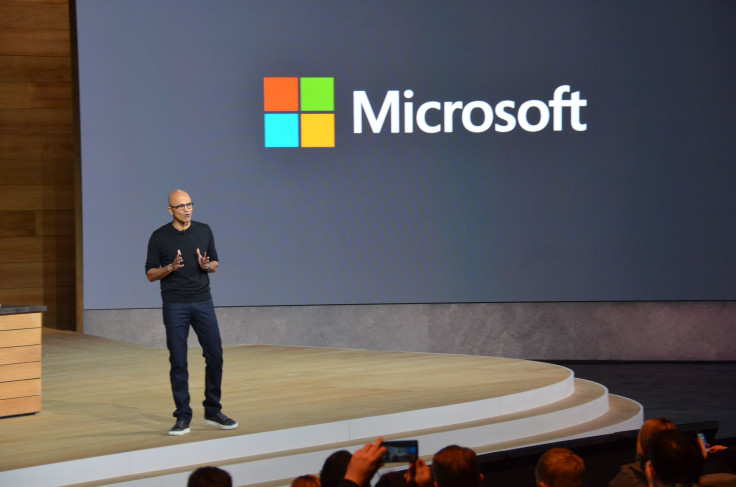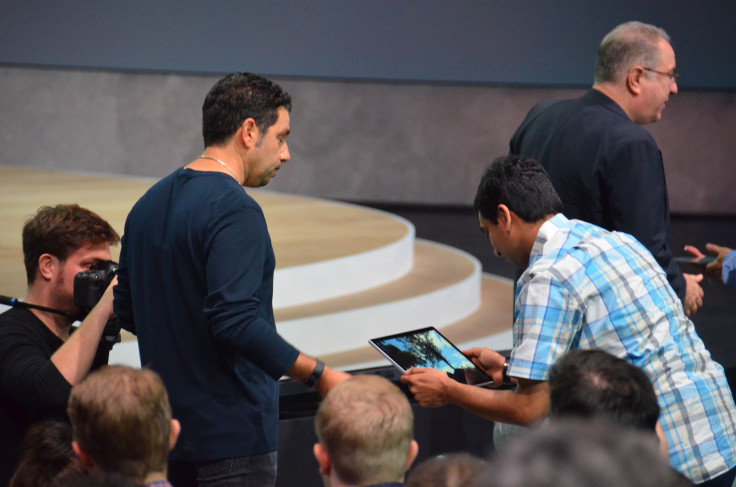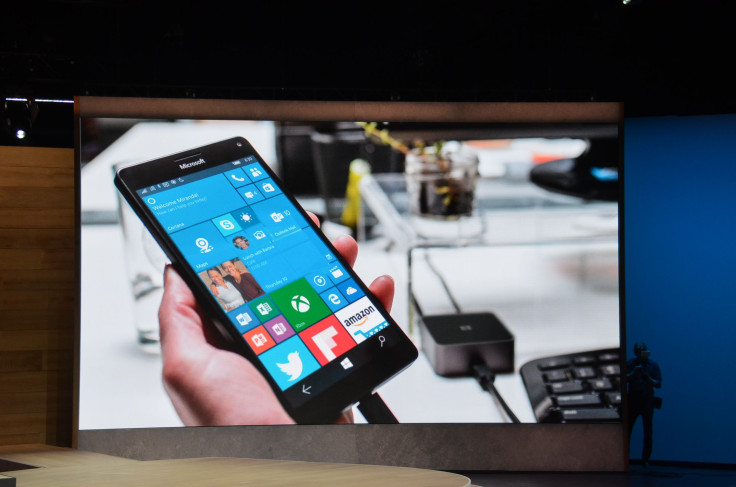With Surface Book, Microsoft CEO Satya Nadella Just Declared War On Apple (And The Entire Windows PC Industry)

Microsoft on Tuesday left little doubt it plans to remake itself in the mold of archrival Apple, introducing a number of sleek, artfully crafted devices that rival and, in some cases, surpass the best Tim Cook and company have produced this year, including the iPhone 6S and iPad Pro.
It’s the clearest sign yet that Microsoft CEO Satya Nadella sees hardware as integral to his company’s future as software is, and he is bent on creating an ecoystem that extends from smartphones and tablets to apps and the cloud.
Oh, and one more thing: That ecosystem now includes laptops. Microsoft’s slew of announcements included the stunning unveiling of the Surface Book, the first laptop the company has ever made and a clear shot at not only the MacBook Air but also Mircosoft’s own PC industry partners.
“We’re making great progress toward the aspiration we shared with you in January,” said Nadella, in his customary black shirt and jeans, at an event in midtown Manhattan. “Moving people from needing Windows, to choosing Windows, to loving Windows.”
Hardware Hopes
There was lots to love about the new products Microsoft showed, all of which are powered by the new Windows 10 operating system. The Lumia 950 (5.2 inches) and 950 XL (5.7 inches) smartphones feature some of the most impressive specs in the industry, including dual antennas for clear reception no matter how they are held, hectacore and octacore processors, respectively, 20-megapixel cameras and a USB-C connector that can charge to 50 percent capacity in 30 minutes.
Both phones also support full HDMI out, so they can send HD audio and video to a television.

Microsoft’s Band 2 personal fitness wearable now measures altitude through the addition of a barometer, and it will also estimate your VO2 max oxygen intake. HoloLens, meanwhile, just got more real. Microsoft announced the futuristic virtual reality headset will be available to developers in the first quarter of 2016 for $3,000.
The Surface Pro 4, which was expected to be the highlight of Tuesday's event until the Surface Book showed up, is in its own right a smart piece of hardware. Its 267 ppi 12.3-inch display, under 4.4-mm Gorilla Glass 4, outdoes the 12-inch display on the Surface Pro 3, but its overall footprint remains unchanged. A new and improved pen, which now includes an eraser, comes in four colors.
But it was the introduction of the 13.5-inch Surface Book, which had completely escaped the rumor mill, that stole the show. Its specs, including a discrete Nvidia GeForce GPU and the latest Core series chips from Intel, are market-leading. “It will immerse you like nothing has immersed you before,” said Microsoft hardware engineering chief Panos Panay, who spoke at Tuesday’s event.

But what’s more significant is what its debut means for Microsoft and the personal computing industry.
Clearly, Nadella is no longer willing to put his company’s future in the hands of Windows PC-makers like Dell and Hewlett-Packard, which Microsoft officials have privately criticized in the past for failing to produce machines that could inspire the loyalty shown by Apple devotees. Nadella now apparently is willing to risk alienating vendors that have been Microsoft’s most important partners in terms of getting Windows into the market to realize his ecosystem vision.
“We now begin a new chapter for Windows 10,” he said.
A Rounding Error?
The question is whether Microsoft’s shiny new hardware is enough to draw consumers away from the dominant mobile ecosystems -- Apple iOS and Google’s Android. As impressive as the new Lumia phones and Surface hardware are, technology buyers may be loathe to switch from the ecosystems with which they already are familiar and in some cases into which they feel locked. The thought of having to port contacts, settings and preferences onto an entirely new platform may be enough to keep most of them on their current devices.
Still, analysts said Tuesday that Microsoft has little choice but to push as hard as possible into phones and tablets, given the PC market’s dwindling fortunes.
The company needs Windows 10 “to help drive further consumer demand and ideally start to change the perception of Microsoft as a ‘rounding error’ in the smartphone and tablet landscape,” Dan Ives, an analyst at FBR Capital Markets, said in a note to clients. “It all comes down to consumer adoption.”
With the crucial holiday shopping season just around the corner, Microsoft won’t have to wait long to find out if it can, indeed, be more than a rounding error.
© Copyright IBTimes 2024. All rights reserved.






















